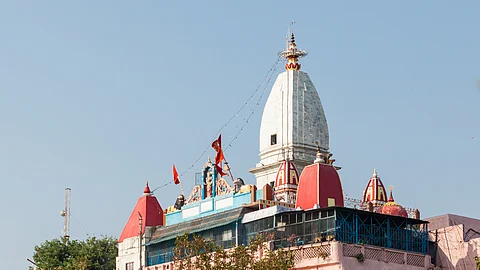
- Destinations
- Experiences
- Stay
- What's new
- Celebrating People
- Responsible Tourism
- CampaignsCampaigns
- SubscribeSubscribe
- Buy Now

A religious gathering at Haridwar’s revered Mansa Devi Temple took a fatal turn on July 27, 2025, when a stampede claimed 6 lives and left over 20 others injured. The incident occurred amid heavy footfall during the Shravan month, a period of heightened pilgrimage activity in the region. The tragedy has sparked questions over crowd control and safety preparedness at one of Uttarakhand’s most visited temples.
The stampede at Mansa Devi unfolded on Sunday at 8:30 am owing to a rumour about electricity hazards. The walkway witnessed large numbers of devotees who were rushing towards the temple premises in order to offer prayers just as the stampede broke out. Located atop the Bilwa Parvat, Mansa Devi Temple is only accessible via ropeway and stairs, and receives tens of thousands of visitors annually during the Hindu month of Shravan.
According to police officials, the rush intensified near the main staircase when some pilgrims lost balance, leading to a domino effect of panic and anxiety in the narrow and steep passageways. The situation escalated rapidly before security personnel could intervene. Witnesses reported scenes of panic and cries for help as devotees struggled to make good their escape from the crowd crush.
Authorities have so far confirmed the death of six individuals; these include three women and two elderly persons, who succumbed to death in the stampede. Medical officials at the Haridwar District Hospital stated that over 20 others sustained considerable injuries, several of them critical. Most victims were from neighbouring states including Uttar Pradesh and Bihar, who had travelled for the auspicious Shravan darshan.
Immediate medical attention was provided by local ambulances and disaster response teams, and many of the injured were shifted to higher medical centres in Dehradun for further treatment.
Officials attributed the incident to rumour about electricity hazards and severe overcrowding, worsened by the absence of an effective crowd management plan. Despite prior warnings issued by district officials about the surge in pilgrims at the site during Shravan, preparations on the ground appear to have been insufficient.
Eyewitnesses noted the lack of smooth entry and exit demarcations, inadequate police deployment, and absence of crowd marshals. Many also criticised the administration for not restricting entry at key pressure points, such as the ropeway base and temple approach route.
Chief Minister Pushkar Singh Dhami expressed deep grief over the loss of lives and announced compensation of INR 2 lakh for the families of the deceased and INR 50,000 for the injured. He has also ordered a high-level probe into the incident and directed the formation of a special task force to investigate the lapses in crowd control and temple management that led to the catastrophe.
The Uttarakhand government also confirmed that additional police forces were immediately deployed at other major pilgrimage sites across the state, including Har Ki Pauri and Chandi Devi Temple, to obviate any similar mishaps during the remainder of the Shravan period.
The tragedy has once again reignited debate around crowd safety, overtourism and infrastructure at India’s religious sites. The Mansa Devi Temple, which draws millions annually, has long been in need of upgraded infrastructure, especially during festival seasons when the footfall is high. Urban planning experts have called for comprehensive crowd simulation modelling, enhanced surveillance systems, and digital queueing solutions to manage future influxes safely.
As Haridwar mourns the victims, questions linger about whether this disaster could have been avoided. The upcoming weeks will be crucial in determining accountability and establishing stronger safeguards for India’s religious tourism sector.
(With inputs from PTI and various sources.)
